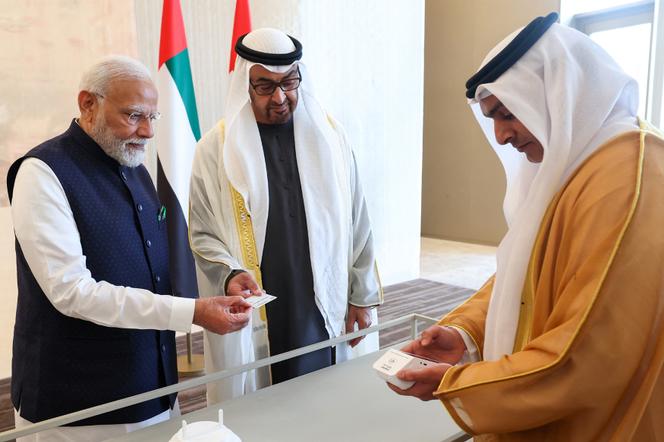


From the Eiffel Tower to Mauritius, via Sri Lanka, Nepal, Bhutan, and the United Arab Emirates, the mobile payment system developed by India is being exported around the world. Since January 26, Indian tourists have been able to buy their tickets for the Eiffel Tower via Unified Payments Interface (UPI), India's mobile payment system, simply by scanning a QR code recognized by their usual payment application. This service was developed alongside French specialist Lyra, which has been in India for 17 years.
"One million Indians visit France every year, and a number growing by 20% to 30% a year," said Christophe Mariette, Lyra's sales director. "UPI's target are famous monuments, hotels, transport, retailers, etc." Launched in 2016 by the nationalist government, the technology has revolutionized mobile payment in India, where paying in cash is the norm. Indians use it for online purchases, vegetables bought from street vendors, or loose cigarettes for around 10 rupees, the equivalent of a few euro cents.
"UPI technology has been widely adopted by Indian consumers. In December 2023, 12 billion transactions were recorded: the system is used mainly for small amounts," explained Satish Meena, an analyst at Datum Intelligence. In 2023, the number of transactions carried out using this technology was over 100 billion, with a value of €2 trillion.
The architecture of the system, developed in open source by the government, is used by third-party applications such as Google Pay, Amazon Pay, and PhonePe. It connects over 500 banks and enables instant payments and bank transfers via mobile apps. "Unlike other systems, this is not an electronic payment wallet, but rather immediate transfers from bank account to bank account, via apps that use the UPI architecture," explained Meena.
The service is free of charge for users. "In a low-income country like India, the penetration rate of mobile payments, with huge volumes at low cost, can be considered one of this government's great success stories," said Hemindra Hazari, an independent analyst based in Mumbai. Prime Minister Narendra Modi's government is also trying to use it as a diplomatic and soft power tool, particularly in the Global South. On February 12, the nationalist leader announced the launch of UPI for Indian tourists in Sri Lanka and Mauritius.
The system has already signed agreements with Singapore, the United Arab Emirates, Bhutan, and Thailand. Indian workers living in Singapore and the Emirates should be able to send funds to their home country thanks to the interconnection of local mobile payment systems with UPI. This should soon be the case in Nepal too. "UPI technology can also be used by any government to develop its own mobile payment system, which could be useful in some low-income, unbanked African countries," explained Meena. India, which wants to become the voice of the Global South on the diplomatic stage, is particularly keen to share its technology with those countries.
